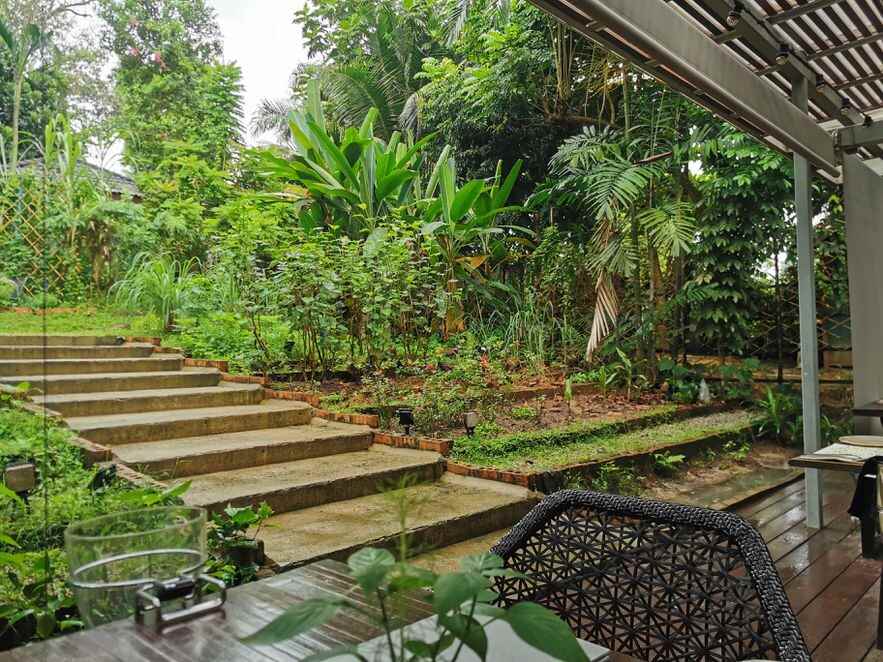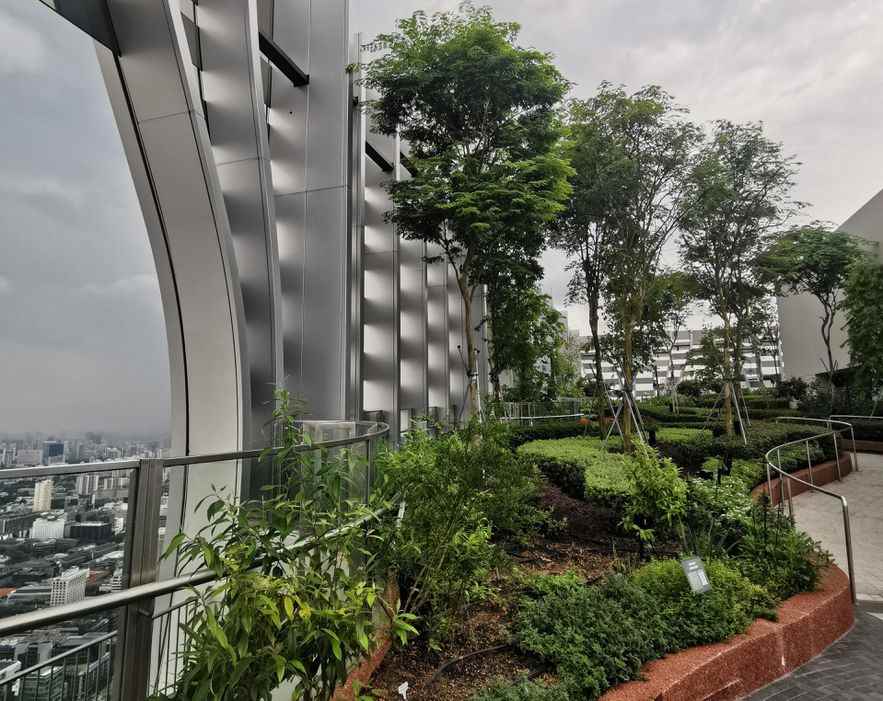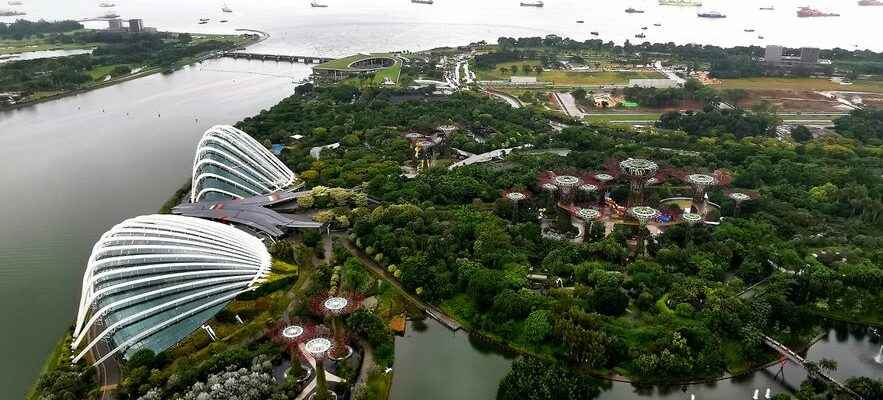“I have been living in Hong Kong with my girlfriend for three years, but we are planning to go to Singapore”, testifies this young consultant crossed at the end of August at Changi airport. Like him, many expatriates in Hong Kong are turning to the rival city-state. In question: the democratic recession at work since the attachment of the former British colony to Beijing. “Given the situation – and this had started before the Covid – we are seeing more and more French families arriving”, attests Marc Abensour, former French ambassador to Singapore – replaced in October by Minh-di Tang.
Today, 14,000 French people reside in the country. Despite limited freedom of expression, the reasons are multiple: security, cleanliness, multiculturalism, quality education, leisure… Added to this is a large gastronomic scene: simple hawkers – such as the Chinatown Complex Food Center and the Tiong Bahru Market where you can eat for 6 Singaporean dollars (about 4 euros) – at the starred restaurant and trendy cocktail bars, the choice is vast.
“I never left”
Laure Baril arrived in Singapore in 2016. After two years at Sephora in France, she moved to the city-state to manage human resources and the integration of Luxola, an e-commerce platform for beauty products. acquired by the brand. “The objective was to launch e-commerce in the region. The mission was planned for six months, but I never left, she says. I felt like I was breathing when I arrived here. J ‘ve discovered a region that I didn’t know before. I was able to travel to Indonesia, Japan, Cambodia, Australia, etc. The project anchored me in Singapore… where I also started a family! “
After setting up a new organization, she was appointed HR Director of Sephora’s headquarters in Singapore and, since September 2022, of LVMH Beauty for Southeast Asia. What does she appreciate? “The city is international, very clean, very safe. We can walk the streets whenever we want. The children can play outside. We have a big house, a nanny…”
Economic attractiveness
On the business side, Singapore is also attractive. Some 800 subsidiaries and 300 tricolor start-ups have their offices there, while the scientific community has 250 to 300 researchers from France there. Laure Baril observes: “Several companies have transferred their headquarters to Singapore.” And to quote L’Oréal, Moët Hennessy and Estée Lauder.
Some 800 subsidiaries and 300 French start-ups have set up their offices in Singapore.
© / Stephanie Gendron
Singapore owes its attractiveness not only to its quality of life… or to its tax incentives. “Political stability, legal certainty, financial, economic, digital, logistical and scientific hub… Singapore’s strength is the synergy between all these facets”, says Marc Abensour. Without forgetting the ability of the State to anticipate… and to achieve. Prime Minister Lee Hsien Loong announced on August 21, 2022, three major projects: the construction of the largest container port in the world within the next twenty years; the completion, before 2030, of the airport’s fifth terminal, which will be able to accommodate 50 million passengers per year; the urban redevelopment of the former Royal Air Force aerodrome, Paya Lebar Airbase, from 2030. And that’s not counting the urban mobility projects of this decade: creation of 60,000 electric charging stations, 700 kilometers cycle paths and 360 kilometers of rail networks.
The smart city laboratory… and urban farms
“For companies, researchers or urban planners, Singapore is a real laboratory in terms of the smart city”, observes Marc Abensour. The other priority sectors? Finance, health, ecology, digital… and food, with three priorities: urban farms, new proteins and aquaculture; the state aiming for 30% self-sufficiency by 2030.
On this last axis, initiatives are multiplying. Especially on the restaurant side. Thus Open Farm Community: in this establishment which supports a network of organic growers and breeders from Singapore and Southeast Asia, the cuisine comes from the large adjoining garden and local products. The menu varies according to arrivals and production. And, outside, the guests have lunch at the foot of the plantations, and among the roosters and hens. At Scaled by Ah Hua Kelong, a seafood and fish restaurant, the chef sources his own fish farm and other products from Singaporean waters.

Terrace of the Open Farm Community restaurant in Singapore
© / Stephanie Gendron
In a different style but in the same state of mind, Seki Takuma, the chef of Noka – a Japanese establishment where refinement and high gastronomy reign – uses herbs and vegetables from the garden installed on the roof of Funan Mall, the shopping center that shelter. Also open to the general public, this more than 1,600 square meter vegetable garden is run by Singaporean entrepreneur Cynthia Chua and the social enterprise Edible Garden City, which has set itself the mission of “improving food sustainability and resilience”. Admittedly, this is the tip of the iceberg, but these approaches illustrate the desire to develop local products. A way also to meet an environmental obligation: for any new construction, the footprint must be compensated by the integration of the equivalent in plants within the building.

The rooftop garden at Funan Mall is run by Singaporean entrepreneur Cynthia Chua and social enterprise Edible Garden City.
© / Stephanie Gendron
Rising prices
“If the number of French people in Singapore fell by almost 10% during the Covid, the community is growing again,” notes Marc Abensour. Before tempering: “This will be regular, but never massive due to an increasingly demanding policy for issuing residence permits and the very high cost of living.” An example ? Rents have increased by 30 to 60% in one year.
Unlike Singaporeans who live for 80% of them in HDBs (low-rent housing closed to foreign residents), an expatriate will have to count a minimum of 1300 Singaporean dollars (about 913 euros) per month for a room. in shared accommodation in a two-room apartment in a condominium (condominium building). For a family, the range is 4000 to 4500 dollars (2800 to 3200 euros approximately). Laure Baril observes: “Since the pandemic, things have changed. VAT, schools, transport… Prices have soared! Many people have lost their jobs. As for going out, it’s less spontaneous: you have to book everything.” Result ? The small family plans to return to France in four or five years. The other side of the coin…
The city by bike
For candidates for expatriation, but also for curious tourists, the Let’s Go Tour Singapore company offers bicycle excursions. The best ? The historical tour of the city which will take you through the key districts: Arab Street, Little India, Chinatown, Marina Bay Sands, Financial District, Singapore River quays… So many reflections of the construction of Singapore, its diversity and of local life to better understand this city-state in perpetual renewal.
